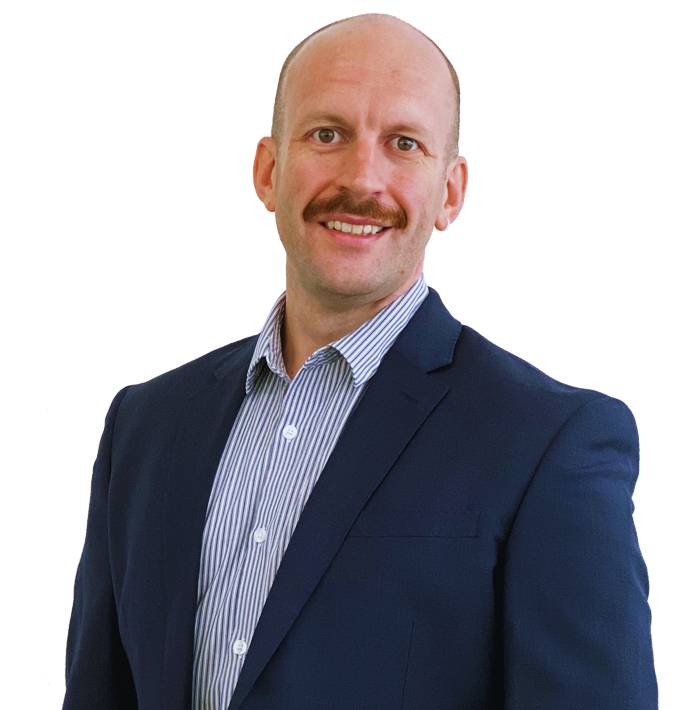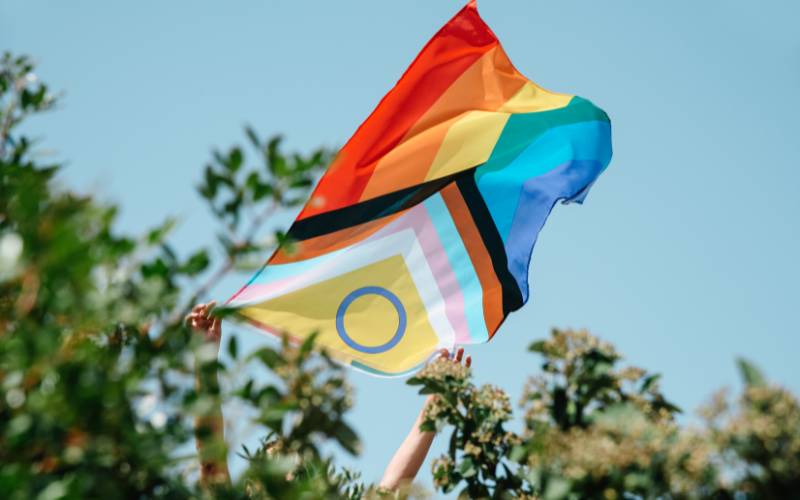
Taylor Wessing’s Dan Harris: “I’m Sharing My Personal LGBTQ+ History”
Interviews
Dan Harris, Head of Responsible Business at Taylor Wessing, shares his story and the importance of LGBTQ+ History, both in his personal and professional life.

Hi Dan, thanks for chatting with us! Tell us a bit about yourself.
I'm the Head of Responsible Business at Taylor
Wessing. I work in the Talent (HR) team leading our inclusion,
community, and sustainability agenda. Taylor Wessing is an international law
firm with around 800 people in the UK. I joined them in 2015 as an
HR Business partner. The Responsible Business team didn't exist unless you counted me and a few colleagues who did a bit of inclusion and
CSR activity on the side and in addition to our full-time roles. I
was one of the founding members of our LGBTQ+ network,
equaliTW. Since then, inclusivity has grown in importance to become
part of our corporate strategy. I lead a team of six dedicated to
progressing our responsible business outcomes. My work enables me to
promote our progressive culture of inclusion every day. It's that
feeling of acceptance and fulfilment that has kept me going, especially when
work is demanding or life throws you a few curve balls.
Can you share a little bit about LGBTQ+ History Month?
So even after university, when I took the decision to
come out to friends and family, I went back into the closet at work, and this
continued with each new employer. I remained secretive about
my sexuality until I established a group of colleagues I felt safe coming out to. This was through fear of being rejected and a belief that being
gay could potentially be career-limiting. It's hard to imagine now
that I used to worry about the clothes I wore, what I shared about my life outside
work, and if my 'secret' might be discovered.
I started working part-time in a law firm during my
university days in the late 1990's. At the time, gay people had no
legal protection from discrimination based on their sexual orientation. It's hard
to believe now, but it wasn't until 2007 that we gained these
rights. Until then, I could have been sacked simply for being
gay. There were no LGBTQ+
networks, outward signs of acceptance or visible LGBTQ+ people
where I worked, never mind a month devoted to learning about our history!
That changed when joined Taylor Wessing. It's the
first firm where I've been my authentic self from day one. Why was that? It was
partly a sign of the times - changing attitudes in society towards LGBTQ+
people. But it was also the people I met at the interview and the clear public
messaging about LGBTQ+ acceptance on the website and recruitment
materials. I was invited to a fundraiser being hosted at the firm for
the London Gay Men's Chorus. I clearly wasn't going to
be the only gay guy in HR who needed to try and blend in! Just
the existence of what was a fledgling LGBTQ+ network at the time demonstrated
Taylor Wessing was proud to support LGBTQ+ people and our community.
Like many LGBTQ+ people, my mental health has suffered
because of my sexuality. Thanks to Section 28 of the Local Government Act, it
took me several years to come to terms with being gay and to explore who I
was. It was a formative period in my life that I now know was
perfectly normal and healthy. I finally came out at the age of
25, having graduated from university and moved to London. I met new people and
realised that the feelings I'd repressed for many years out of fear and
ignorance weren't wrong. It was OK to be gay, in fact, it's more than just
OK. With a bit of life experience and a few battle
scars, I can say I'm proud of who I am and that being gay is pretty
awesome.
Coming out was nerve-wracking, but each time I did it (people often forget that it’s actually an ongoing process), it got easier. I will always remember the feeling of relief that my parents, family and friends all accepted me. I realise that not everyone is that lucky, but I can honestly say I've not looked back.
Have you celebrated LGBTQ+ History Month
before? If you have, how?
Yes, and it's great to see History Month taken up by
so many employers, schools and the media. Growing up I had no visible role
models or an understanding of what it meant to be gay.
At work, it's become a regular feature of our inclusion calendar. We use History Month as an opportunity to share our personal coming-out stories with our colleagues. This is to help our allies and others understand the experience of LGBTQ+ people at work and in society and how this has changed in recent times. Our aim is to enable people to become better allies. And that's a message that applies equally to those of in the LGBTQ+ community too. It's vital that we get better at understanding people who identify differently from us because it means we can stand together in the face of adversity.
Why is LGBTQ+ History Month important to
you?
We owe a massive debt of gratitude to the pioneering LGBTQ+ people who campaigned to get the rights we all enjoy today. Rights that have been hard won in a relatively short period in history can so easily be eroded. You only have to look at the current trans-phobic stance the UK Government are taking and how easily the right-wing media have stirred up what has become a toxic debate about the human rights of trans people for evidence of that. We owe it to the campaigning generation not to forget the struggles they went through. I firmly believe we can learn a lot from the past. LGBTQ+ History Month gives us an opportunity to shine a light on a history so often shrouded in secrecy and fear. I want to pay it forward to the next generation and enable them to have a better experience than I did.
What will you be doing to celebrate LGBTQ+
History Month this year?
I'm sharing my personal LGBTQ+ history. My story isn't so different to many people from my generation: a little boy who had a sheltered Christian upbringing; experienced exclusion, confusion, guilt, and fear at the thought of being gay; and who overcame mental health challenges to lead a successful career and enjoy life. If something from my story helps just one person understand themselves, know that being gay is anything but career limiting, and accept themselves for who they are, then I've done my bit for LGBTQ+ history.
Who is an LGBTQ+ person from history who is
important to you? Why do you think their stories are important?
Alan Turing, without whom the outcome of the second world war could have been quite different, and the computer on which I've written this interview may not have existed
Do you think LGBTQ+ people are represented
in history books enough?
After so many years of repression, secrecy and being hidden
away, there must be countless stories of amazing LGBTQ+ people that will
forever remain a mystery. I'm not sure they will ever be properly
represented, but things are getting better.
For anyone interested in the history of male homosexuality In the UK in the last 50 years, Odd Men Out by John-Pierre Joyce makes for an informative and interesting read.
Were you taught about
LGBTQ+ history in school?
Nope, absolutely nothing.
I grew up in a Christian family in rural Herefordshire during the (late) 80's and 90's. With Section 28 (of the Local Government Act) in force, it was unlawful for schools to 'promote homosexuality'. There was no information about LGBTQ+ issues or history at school. The AIDS crisis was also in full swing, so no positive messaging in the media either, In fact, the opposite, gay people and culture were demonised in the press. To be honest, I didn't know what being gay was. I knew I wasn't into football and girls, and the resulting bullying throughout my school years had a lasting impact. Being excluded, threatened and intimidated does nothing for your self-confidence when you're growing up! Thankfully I've overcome many of my demons, but I can pin the mental health issues I experienced in later life back to this period.
Do you have any tips
for organisations that want to celebrate LGBTQ+ History Month for the
first time?
If you're going to start anywhere, simply promote inclusive values and allyship. I guess if you’re thinking about celebrating History Month, there must be a few LGBTQ+ people there. So my advice is to support and encourage your colleagues to share their experiences. Enabling your people to be their true authentic selves will boost their confidence and engagement, It's not about having a huge network for every diverse characteristic but presenting your organisation with an inclusive outlook, focusing on what connects us all and creating a sense of belonging, rather than our differences.

Image source: Canva

